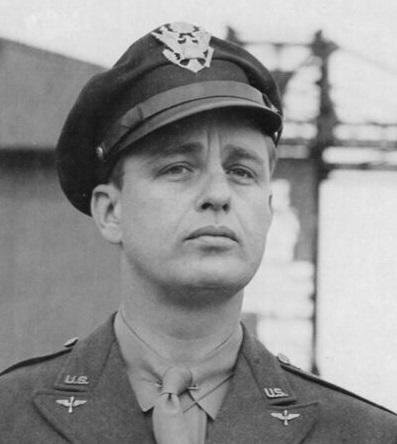Elliott Roosevelt was an American aviation official, military officer, author, and politician who served as the 24th mayor of Miami Beach, Florida. Born on September 23, 1910, in New York City, Elliott was the son of President Franklin D. Roosevelt and First Lady Eleanor Roosevelt. His siblings were Anna, James, Franklin Jr., and John. Unfortunately, an older brother, Franklin, died in 1909 as an infant. After attending the Hun School of Princeton and Groton School, Elliott worked in various jobs before settling in broadcasting in the 1930s. In 1933, he served briefly as general manager of Gilpin Airlines of Glendale, California. Later that year, he became the aviation editor for William Randolph Hearst’s newspapers.
In 1940, Roosevelt received a captain’s commission in the United States Army Air Corps on his 30th birthday. His appointment in the middle of the 1940 election campaign caused a furious political row, although General Henry H. Arnold, the Chief of the Air Corps, asserted that there was no pressure or nepotism involved. Roosevelt rose to brigadier general by January 1945 and flew 89 combat missions by the time of his inactivation from the United States Army Air Forces (USAAF) in August 1945. He pioneered new techniques in night photography and meteorological data-gathering as a reconnaissance commander, but his claims to a distinguished record on combat missions have been largely discounted.
Roosevelt coordinated closely with FDR, Prime Minister Winston Churchill, and General Arnold and searched for and located air base sites in Labrador, Baffin Island, and Greenland in the summer of 1941. He reported on conditions in Iceland and along the rest of the embryonic North Atlantic ferry route. Roosevelt was also the first to interest Churchill in American bases in Africa, including Bathurst in the Gambia, a step for which his father was not yet ready. During the Tehran Conference in November–December 1943, Roosevelt spoke in favor of Joseph Stalin’s proposal to round up and shoot some 50,000 German officers and technicians after the war in order to permanently incapacitate Germany. This earned him Stalin’s cheers and the vocal and lasting hostility of Churchill, who said, “I would rather be taken out into the garden here and now and be shot myself.”
Roosevelt published a book about his attendance at several major Allied war conferences and a controversial exposé of his parents’ private life. He also wrote 22 mystery novels. His career also embraced broadcasting, ranching, politics, and business. He briefly served as president of the short-lived Empire Airlines of New York in 1946, citing his influence with the Civil Aeronautics Board (CAB), which, however, did not result in route awards. Roosevelt owned a small aircraft and maintained a private pilot’s license after the war.
After the war ended, Roosevelt faced an investigation by the United States Congress on charges of corruption, including accusations that he had recommended the purchase of the experimental Hughes XF-11 reconnaissance aircraft ahead of a Lockheed model that was believed to be superior. Ultimately, he was found blameless. Meyer reported to the committee that he had spent $5,083.79 ($78,256 in 2021 dollars) on entertainment for Roosevelt. In his own defense, Roosevelt testified that he never heard of the XF-11 until General Arnold let him know about it and that several of the parties appeared to have taken place on days when he was out of the country on active duty.
After FDR’s death in 1945, Roosevelt and his family moved to Top Cottage to be near his mother, who considered him her favorite child.
In 1946, Elliott published his memoir “As He Saw It,” which was a critical reflection on his father’s presidency and America’s role in World War II. The book was controversial and led to a falling out between him and his siblings, who felt that he had unfairly criticized their father.
Elliott continued to work in various business ventures throughout the 1950s and 1960s. He also became involved in Republican politics, running unsuccessfully for Congress in 1950 and serving as chairman of the New York State Republican Committee from 1950 to 1952.
In the 1960s, Elliott became more active in international business, traveling extensively to promote American companies in Europe and the Middle East. He also became involved in the oil industry, serving as an executive for several companies, including Gulf Oil and Standard Oil.
Elliott Roosevelt died on October 27, 1990, in Scottsdale, Arizona, at the age of 80. Despite his many accomplishments, he is perhaps best remembered for his complex relationship with his father, Franklin D. Roosevelt, and his controversial memoir “As He Saw It.
References:










